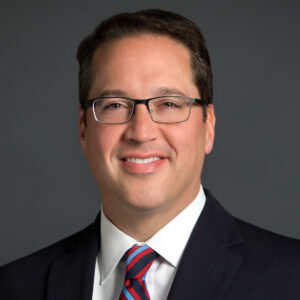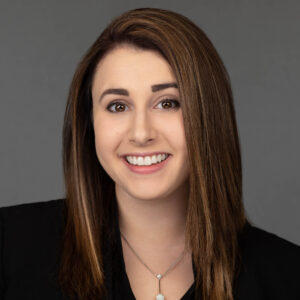Pittsburgh, PA
The Legal Intelligencer
(by Steve Antonelli and Alex Farone)
Changes in the world of non-competition agreements (“non-competes”) have been particularly prevalent in recent weeks, most notably including court activity barring the Federal Trade Commission’s new non-compete ban and Pennsylvania’s new law restricting the use of certain non-competes for healthcare practitioners.
In May of this year, the Federal Trade Commission (FTC) published a final rule that would ban nearly all new non-competes with employees, independent contractors, and volunteers nationwide, with the exception of non-competes entered into pursuant to certain business sales, on the basis that non-competes are an unfair method of competition and therefore a violation of Section 5 of the FTC Act.
The final rule would also void all pre-existing non-competes except (1) those made with senior executives earning more than $151,164 annually who are in a policy-making position, and (2) those that have been breached and for which a cause of action accrued prior to the final rule’s effective date of September 4, 2024.
The final rule would additionally require employers to provide “clear and conspicuous notice” to all current and former workers, other than senior executives, with existing non-competes by September 4 stating that the non-compete will not be, and cannot legally be, enforced. Immediately after the final rule was published, legal challenges to the ban were quickly filed in various federal courts across the country. As the September 4 deadline approached without a decisive ruling from any of these courts, employers wondered whether the non-compete ban would be ultimately enforceable and began to make strategic plans on whether to proactively change their non-compete practices.
Two weeks before the ban went into effect, on August 20, 2024, the U.S. District Court for the Northern District of Texas ruled against the FTC, finding that the non-compete ban exceeded the FTC’s statutory authority. In Ryan LLC, et al. v. Federal Trade Commission, the court determined that the creation of substantive rules like the non-compete ban stretched beyond the FTC’s power, and that the ban was unreasonably overbroad.
The Ryan decision sets aside the non-compete ban nationally, meaning the ban cannot be enforced or take effect on September 4. All requirements of the FTC rule—including banning the use of new non-competes and notifying workers and former workers with existing non-competes of the unenforceability of those agreements, with few exceptions—are no longer in effect. Employers may continue to utilize non-competes, in the manner prescribed by state statutes and case law. Despite being somewhat overshadowed by the FTC rule and the various legal challenges to it, on July 17, 2024, Governor Josh Shapiro signed one such Pennsylvania state statute into law.
Act 74, which is known as the Fair Contracting for Health Care Practitioners Act, takes effect on January 1, 2025. As of that date, most new non-competes between an employer and a health care practitioner shall be void and unenforceable as contrary to Pennsylvania public policy if the length of the agreement lasts longer than one year. If the time period of a non-compete entered after January 1, 2025 is one year or less, the non-compete will be enforceable, unless the employer dismisses the practitioner. The act will not impact existing non-competes entered before January 1, 2025, regardless of the length of the agreement. Additionally, employers may still enforce non-competes that are entered “as a direct result of” a sale or other transaction (such as a merger) of the health care practitioner’s ownership interest, or substantial ownership interest of, the assets of a business.
Non-competes covered by the act are agreements between an employer and a health care practitioner that prohibits the health care practitioner from treating patients or accepting new patients, whether independently or through the employment of a competitor after the term of the practitioner’s employment. The term “health care practitioner” is defined as medical doctors, doctors of osteopathy, certified registered nurse anesthetists, certified nurse practitioners, and physicians’ assistants, as those terms are defined by applicable laws.
Following the departure of a health care practitioner from their employer, the act also requires employers to take certain steps relative to patients who had been seen by the practitioner within the year before their departure (or two years for ongoing outpatient relationships). The employer must notify patients of: (1) the practitioner’s departure; (2) the manner in which the patient may transfer their health records to a different health care practitioner; and (3) the fact that the patient may be assigned to a new health care practitioner with the employer, if the patient chooses to continue receiving care from the employer.
Employers should continue to monitor the status of the now-barred FTC non-compete ban, as well as Pennsylvania’s newly enacted Fair Contracting for Health Care Practitioners Act. If you have questions about either, please contact Stephen A. Antonelli at 412-394-5668 or santonelli@babstcalland.com, or Alexandra G. Farone at (412) 394-6521 or afarone@babstcalland.com.
Stephen A. Antonelli is a shareholder in the Employment and Labor and Litigation groups of Babst Calland. His practice includes representing employers in all phases of labor and employment law, from complex class and collective actions and fast-paced cases involving the interpretation of restrictive covenants, to single-plaintiff discrimination claims and day-to-day human resources counseling.
Alexandra Farone is an associate in the Litigation and Employment and Labor groups of Babst Calland. Ms. Farone’s employment and labor practice involves representing corporate clients, municipalities, and individuals on all facets of employment law, including restrictive covenants, discrimination claims, human resources counseling, grievances, and labor contract negotiations.
To view the full article, click here.
Reprinted with permission from the September 17, 2024 edition of The Legal Intelligencer© 2024 ALM Media Properties, LLC. All rights reserved.


